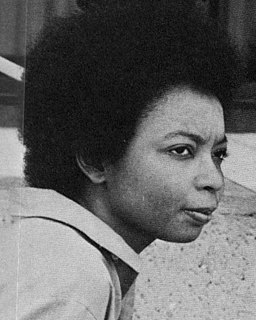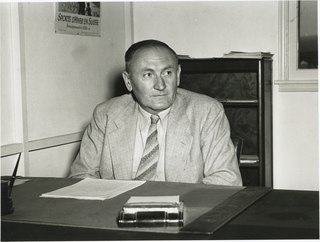A Quote by James Russell Lowell
There is no work of genius which has not been the delight of mankind, no word of genius to which the human heart and soul have not sooner or later responded.
Related Quotes
The Man of Genius may at the same time be, indeed is commonly, an Artist, but the two are not to be confounded. The Man of Genius,referred to mankind, is an originator, an inspired or demonic man, who produces a perfect work in obedience to laws yet unexplored. The artist is he who detects and applies the law from observation of the works of Genius, whether of man or nature. The Artisan is he who merely applies the rules which others have detected. There has been no man of pure Genius, as there has been none wholly destitute of Genius.
I regret that I must so continually use the word genius, as if that should apply only to a caste as well defined from those below as income-tax payers are from the untaxed. The word genius was very probably invented by a man who had small claims on it himself; greater men would have understood better what to be a genius really was, and probably they would have come to see that the word could be applied to most people. Goethe said that perhaps only a genius is able to understand a genius.
It is characteristic of genius to be hopeful and aspiring. It is characteristic of genius to break up the artificial arrangements of conventionalism, and to view mankind in true perspective, in their gradations of inherent rather than of adventitious worth. Genius is therefore essentially democratic, and has always been so.
Either I'm a genius or I'm mad, which is it? "No," I said, "I can't be mad because nobody's put me away; therefore I'm a genius." Genius is a form of madness and we're all that way. But I used to be coy about it, like me guitar playing. But if there's such a thing as genius - I am one. And if there isn't, I don't care.
Genius is its own reward; for the best that one is, one must necessarily be for oneself. . . . Further, genius consists in the working of the free intellect., and as a consequence the productions of genius serve no useful purpose. The work of genius may be music, philosophy, painting, or poetry; it is nothing for use or profit. To be useless and unprofitable is one of the characteristics of genius; it is their patent of nobility.
Gass once wrote: "Language serves not only to express thought but to make possible thoughts which could not exist without it." Here is the essence of mankind's creative genius: not the edifices of civilization nor the bang-flash weapons which can end it, but the words which fertilize new concepts like spermatozoa attacking an ovum. It might be argued that the Siamese twin infants of word/idea are the only contribution the human species can, will, or should make to the raveling cosmos.
With ordinary men the moments which are united in a close continuity out of the original discrete multiplicity are very few, and the course of their lives resembles a little brook, whereas with the genius it is more like a mighty river into which all the little rivulets flow from afar; that is to say, the universal comprehension of genius vibrates to no experience in which all the individual moments have not been gathered up and stored.
I don't like that word 'discovery.' ... Sinatra was the first one to call Ray Charles a genius, he spoke of 'the genius of Ray Charles.' And after that everybody called him a genius. They didn't call him a genius before that though. He was a genius but they didn't call him that. ... If a white man hadn't told them, they wouldn't've seen it. ... Like, you know, they say Columbus discovered America, he didn't discover America.
To eliminate the discrepancy between men's plans and the results achieved, a new approach is necessary. Morphological thinking suggests that this new approach cannot be realized through increased teaching of specialized knowledge. This morphological analysis suggests that the essential fact has been overlooked that every human is potentially a genius. Education and dissemination of knowledge must assume a form which allows each student to absorb whatever develops his own genius, lest he become frustrated. The same outlook applies to the genius of the peoples as a whole.
The great genius does not let his work be determined by the concrete finite conditions that surround him, whilst it is from these that the work of the statesman takes its direction and its termination. ... It is the genius in reality and not the other who is the creator of history, for it is only the genius who is outside and unconditioned by history.




































